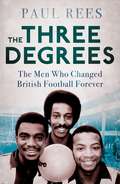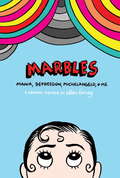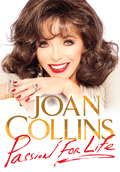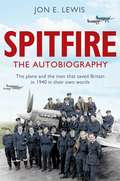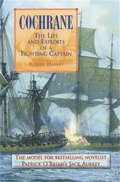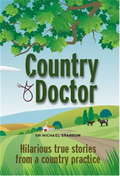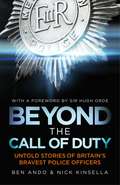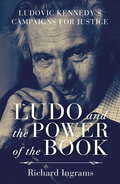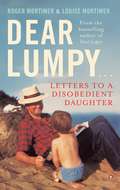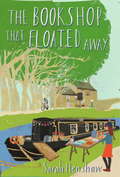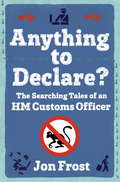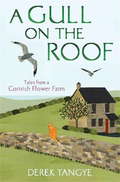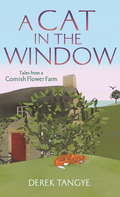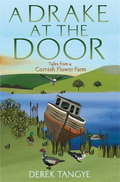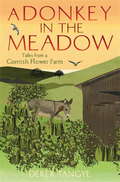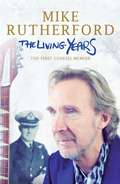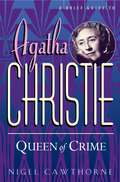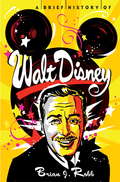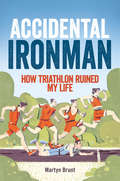- Table View
- List View
The Three Degrees: The Men Who Changed British Football Forever
by Paul ReesWhen Cyrille Regis became one of the first black players to be selected for the full England team, he was sent a package in the mail. Inside it was a silver bullet and a note that read: ‘You’ll get one of these through your knees if you step on our Wembley turf.’ In the 1978/79 football season Regis' club West Bromwich Albion, an unglamorous and little publicised club from the West Midlands, became the first British football team to field three black players: Cyrille Regis, Laurie Cunningham and Brendon Batson. They did so against the backdrop of the most divisive and poisonous racial tension in the UK’s history – a time when the National Front movement was at its most virulent. This book will tell the story of a defining and groundbreaking chapter in the history of British football and the country as a whole. The story is one about sport but also as much one about social change.
Marbles: Mania, Depression, Michelangelo, And Me: A Graphic Memoir
by Ellen ForneyWashington Post's Top 10 Graphic Novels 2012'An unflinching and frequently unforgiving narrative of what it means to have bipolar disorder' - John Crace, Guardian'Marbles isn't just a great story; it's proof that artists don't have to be tortured to be brilliant.' - Entertainment WeeklyShortly before her thirtieth birthday, Forney was diagnosed with bipolar disorder. Suffering from (but enjoying) extreme mania, and terrified that medication would cause her to lose creativity, she began a long struggle over many years to find mental stability while retaining her creativity. Searching to make sense of the popular idea of the 'crazy artist', she finds inspiration from the lives and work of other artists and writers who suffered from mood disorders, including Vincent van Gogh, Georgia O'Keeffe, William Styron, and Sylvia Plath. She also researches the clinical aspects of bipolar disorder, including the strengths and limitations of various treatments and medications, and what studies tell us about the conundrum of attempting to "cure" an otherwise brilliant mind.Darkly funny and intensely personal, Forney's memoir provides a humorous but authentic glimpse into the effects of a mood disorder on an artist's work, as she shares her own story through black-and-white graphic images and prose.Written & illustrated by Ellen Forney - best known for her work on National Book Award-winning The Absolutely True Diary of a Part-Time Indian.
Passion for Life
by Dame Joan CollinsHaving lived many lives when most of us only live one, the stories of Joan Collins' adventures on film sets around the world, the friendships she made, the triumphs and the near disasters could fill many books. Encounters with Princess Diana, Arnold Schwarzenegger, and the romantic story of her courtship and marriage to Percy Gibson are among the new stories Joan shares, in this latest instalment of her witty, wise and revelatory memoirs.Following on from where Second Act left off, the screen icon reveals details of her life with her fifth (and final) husband Percy, her travels around the world, fun with family and friends, and shares more revealing anecdotes about the fascinating people she has met during her life. A Passion for Life is - quite literally - an expression of the joie de vivre which Joan exudes. Filled with fabulous never-before-seen images of her life, from childhood to recent holiday snaps with Percy and her children, this is the ultimate illustrated guide to the life of a British icon.
A Brief Guide to William Shakespeare (Brief Histories)
by Peter AckroydAn accessible and entertaining journey through the life, times, and work of the Bard - Enigma. Master of language. The greatest comedian in history? The most famous writer in the world. But isn't he a little bit boring? This is an essential guide for anyone who has previously avoided the Bard, and is the perfect introduction for first time students or seasoned theatre lovers. The book contains a full commentary of all the plays by bestselling and reknowned writer Peter Ackroyd as well as full descriptions of the cast and the drama; not forgetting the best speeches, and the wit and wisdom from across the works. There is also an opportunity to explore the poems and a complete set of sonnets, as well as an investigation of who the dark lady might have been.Contains:The complete sonnets; the greatest speeches; the best lines.Perfect for students struggling through their first play or for theatre lovers anywhere.Entertaining, accessible, Shakespeare without the boring bits.
Spitfire: The Autobiography
by Jon E. LewisA celebration of the machine and the men who took to the skies in defence of Britain. It is also the dramatic illustration of a little understood truth: the Spitfire did more than win the Battle of Britain - it won the war. It was not Stalingrad which turned the corner of the war against Hitler, it was the Spitfire in the summer of 1940 when RAF Fighter Command destroyed the myth of Nazi invincibility.Praise for his previous books:London: The Autobiography:'Fascinating ... brings the story of London to life' Good Book guideThe English Soldier: The Autobiography: 'A triumph' Saul David, author of Victoria's Army'Harrowing, funny and often unbelievable book.' Daily Express'[A] compelling tommy's eye view of war from Agincourt to Iraq' Daily Telegraph
Cochrane: The Fighting Captain
by Robert HarveyThe adventures of the daring Thomas Cochrane, called 'the sea wolf' by Napoleon, are so extraordinary that his life reads like a page-turning work of fiction. In one sense it became so, for the novelist Patrick O'Brian by his own admission used Cochrane as the basis for Jack Aubrey, hero of his much-loved series of naval novels.Cochrane became a household name when in 1800 he took command of the tiny brig, the Speedy, and created mayhem in the Mediterranean earning himself and his crew a fortune in prize money. A wildly contradictory character, never less than heroic, and this lively new account of his life has sold over 7,000 copies in hardback.
Cochrane: The Fighting Captain
by Robert HarveyThe adventures of the daring Thomas Cochrane, called 'the sea wolf' by Napoleon, are so extraordinary that his life reads like a page-turning work of fiction. In one sense it became so, for the novelist Patrick O'Brian by his own admission used Cochrane as the basis for Jack Aubrey, hero of his much-loved series of naval novels.Cochrane became a household name when in 1800 he took command of the tiny brig, the Speedy, and created mayhem in the Mediterranean earning himself and his crew a fortune in prize money. A wildly contradictory character, never less than heroic, and this lively new account of his life has sold over 7,000 copies in hardback.
Country Doctor
by Michael SparrowHave you ever had to decide what to do with a very large dead body on a Mexican beach, or an unidentified corpse by a Devonian cowshed when the herd is due in for milking? How should you deal with a drug runner rescued from the Caribbean Sea when he pulls a gun on you? And how would you react if one of your patients was abducted by aliens?If you are a GP it seems these are routine matters. From coping with the suicide of a colleague to the unusual whereabouts of a jar of Coleman's mustard, this is the story of one rural doctor's often misguided attempts to make sense of the career in which he has unwittingly found himself.Dr Sparrow's adventures would be utterly unbelievable were they not 100% true stories. His bedside manner may sometimes leave a little to be desired but, if you're in dire straits, this doctor will certainly have you in stitches.
Beyond The Call Of Duty: Untold Stories of Britain's Bravest Police Officers
by Ben Ando Nick KinsellaThe book used by Thandie Newton to research her part in Line of Duty. A lone policewoman disarms a knife-wielding schizophrenic; two officers drag a woman from a railway line seconds before an express train roars past; an undercover cop clings onto the bonnet of a drug-dealer's car as it speeds through a busy town centre. These are just some of the ways Britain's police officers are daily called upon to demonstrate bravery in the line of duty when even the most routine call can turn into a life-or-death situation and split-second judgements can make all the difference. Sometimes officers make the ultimate sacrifice in fulfilling their duty. When PC Bill Parker was swept to his death by floodwaters in Cumbria in 2009, he had been working to save stranded motorists from the same fate.This thrilling collection of first-person accounts of true courage celebrates the sustained bravery and presence of mind routinely displayed by so many officers in England, Wales and Scotland. The stories also reveal an insider's view of the culture, training and techniques police officers use in carrying out their duties.
Ludo and the Power of the Book: Ludovic Kennedy's Campaigns for Justice
by Richard Ingrams'Stirring' Roger Lewis, Daily Mail, BOOK OF THE WEEK'A warm and worthy tribute' The Times'Elegantly written, thought-provoking' The Lady'A lucid and affectionate portrait of one of the great journalists of his day' ObserverSir Ludovic Kennedy was a British journalist, television personality, humanist and author. Following a brief naval career, Ludo devoted his life to what he referred to as his 'lifelong obsession with miscarriages of justice' and he fought this cause tirelessly, until he died in 2009. He is best known for re-examining cases such as the kidnapping of American toddler Charles Lindbergh, about which he wrote his most ambitious book on injustice, The Airman and the Carpenter. Ludo's writings and work on other cases such as the murder convictions of Timothy Evans and Derek Bentley were unique in that they often dispelled the breeding ground for conspiracy theories and regularly heralded dramatic changes of public opinion. Ludo is considered to be hugely influential in the abolition of the death penalty in the UK as well as other legal reforms, most notably the Police and Criminal Evidence Act (1984) which obligated police to tape-record the questioning of suspects. His life story is one that deserves to be remembered and celebrated.Richard Ingrams first met Ludovic Kennedy in 1963 and the pair quickly bonded over their shared goal of exposing the fallible nature of the British justice system. Ingrams interweaves this biography with detailed analysis of the cases to which Ludo dedicated his life, vividly recapturing the spirit of his friend and colleague.
Dear Lumpy: Letters to a Disobedient Daughter
by Louise Mortimer'Dearest Lumpy, I hope you are plump and well. Your mother bashed her car yesterday and chooses to believe it was not her fault...'Roger Mortimer's witty dressing-downs and affectionate advice were not only directed at his wayward son, Lupin. Though better behaved than her mischievous older brother, Louise (aka 'Lumpy') still caused her father to reach for his typewriter.The trials and tribulations of Louise's days at boarding school, her eventful wedding to Hot¬Hand-Henry and the birth of his grandchildren are all accompanied by a sometimes chiding, but always loving letter.Between these milestones, Roger gives updates on the family, pets and the local gossip, holds forth on the weather, road safety, and even suggests the best way to make a gravy soup, all in his own inimitable style.With the same unique charm and often snort-inducing humour that made Dear Lupin a bestseller, Roger Mortimer guides and supports his daughter through every scrape she found herself in. Hilarious and instantly familiar, Dear Lumpy is a perfect example of the glorious art of letter writing, and the timeless relationship between father and daughter.
Dear Lumpy: Letters to a Disobedient Daughter
by Louise Mortimer'Dearest Lumpy, I hope you are plump and well. Your mother bashed her car yesterday and chooses to believe it was not her fault...'Roger Mortimer's witty dressing-downs and affectionate advice were not only directed at his wayward son, Lupin. Though better behaved than her mischievous older brother, Louise (aka 'Lumpy') still caused her father to reach for his typewriter.The trials and tribulations of Louise's days at boarding school, her eventful wedding to Hot¬Hand-Henry and the birth of his grandchildren are all accompanied by a sometimes chiding, but always loving letter.Between these milestones, Roger gives updates on the family, pets and the local gossip, holds forth on the weather, road safety, and even suggests the best way to make a gravy soup, all in his own inimitable style.With the same unique charm and often snort-inducing humour that made Dear Lupin a bestseller, Roger Mortimer guides and supports his daughter through every scrape she found herself in. Hilarious and instantly familiar, Dear Lumpy is a perfect example of the glorious art of letter writing, and the timeless relationship between father and daughter.
The Bookshop That Floated Away
by Sarah HenshawIn early 2009 a strange sort of business plan landed on the desk of a pinstriped bank manager. It had pictures of rats and moles in rowing boats and archaic quotes about Cleopatra's barge. It asked for a ?30,000 loan to buy a black-and-cream narrowboat and a small hoard of books. The manager said no. Nevertheless The Book Barge opened six months later and enjoyed the happy patronage of local readers, a growing number of eccentrics and the odd moorhen.Business wasn't always easy, so one May morning owner Sarah Henshaw set off for six months chugging the length and breadth of the country. Books were bartered for food, accommodation, bathroom facilities and cake. During the journey, the barge suffered a flooded engine, went out to sea, got banned from Bristol and, on several occasions, floated away altogether. This account follows the ebbs and flows of Sarah's journey as she sought to make her vision of a floating bookshop a reality.
The Bookshop That Floated Away
by Sarah HenshawIn early 2009 a strange sort of business plan landed on the desk of a pinstriped bank manager. It had pictures of rats and moles in rowing boats and archaic quotes about Cleopatra's barge. It asked for a £30,000 loan to buy a black-and-cream narrowboat and a small hoard of books. The manager said no. Nevertheless The Book Barge opened six months later and enjoyed the happy patronage of local readers, a growing number of eccentrics and the odd moorhen.Business wasn't always easy, so one May morning owner Sarah Henshaw set off for six months chugging the length and breadth of the country. Books were bartered for food, accommodation, bathroom facilities and cake. During the journey, the barge suffered a flooded engine, went out to sea, got banned from Bristol and, on several occasions, floated away altogether. This account follows the ebbs and flows of Sarah's journey as she sought to make her vision of a floating bookshop a reality.
Anything to Declare?: The Searching Tales of an HM Customs Officer
by Jon FrostIn more than twenty years, Jon Frost has worked with the mad, the bad, the brave, the stupid, the spectacular and the heroic. In his time as a uniformed officer Jon seized presidential aircraft, a working tank, cars, lorries, boats and coffins; and uncovered wild animals, killer snakes, bush meat, animal porn, poisonous vodka, dodgy medicine, bootleg prescriptions, pirated pills, toxic alcohol, firearms, side-arms, swords, explosives, stolen gold, dirty money, blood diamonds, child pornography and every drug known to man and a few as yet unknown ones. And the dead? He searched them too.When you’ve confiscated everything from a suitcase full human hair to a live monkey hidden in the lining of someone’s overcoat, you know you can never return to a normal line of work.But then Jon went into undercover customs work, and things became really interesting . . .
A Gull on the Roof: Tales from a Cornish Flower Farm (Minack Chronicles #5)
by Derek TangyeThe first title in the Minack Chronicles, which tell the story of how Derek and his wife Jeannie left behind their London home to establish a flower farm on the coast of Cornwall. From inauspicious beginnings, this book includes tales of the couple's first animals, including Monty the ginger cat, and takes us through trials and tribulations until the arrival of a gull on the roof provides the first augury of better times to come.
A Cat in the Window: Tales from a Cornish Flower Farm (Minack Chronicles #7)
by Derek TangyeThe second title in the Minack Chronicles, this tells in more detail the story of Derek and Jeannie's beloved ginger cat Monty. From the first moment Derek, who was not until then a cat-lover, met a tiny bundle of fur with Jeannie, through to the pet's old age when he would still walk down to the stream to make 'Monty's Leap', this is a touching story of friendship between two people and their cat.
A Drake at the Door: Tales from a Cornish Flower Farm (Minack Chronicles #8)
by Derek TangyeThe third title in the Minack Chronicles, which tell the story of how Derek and his wife Jeannie left behind their London home to establish a flower farm on the coast of Cornwall. This book takes a closer look at some of the animals who shared the Tangye's home and surroundings, especially Boris, the Muscovy duck.
A Donkey in the Meadow: Tales from a Cornish Flower Farm (Minack Chronicles #6)
by Derek TangyeThe fourth title in the Minack Chronicles tells the story of how Derek and Jeannie acquired two donkeys, Penny and Fred. From the first steps and learning all about donkey foibles, through to picnics in the meadows, this is a further charming instalment in the tales of the Tangye's life at Minack.
The Living Years: The First Genesis Memoir
by Mike Rutherford"Now Michael, you're the son of a naval officer, you must behave like a naval officer at all times..."What Captain William Rutherford told his seven-year-old son Michael was to stay with him all his life. Born in 1950, Michael was truly his father's son, even serving in the naval section of the student cadet corps at one of England's top public schools, Charterhouse. Mike's future lay in the civil service: it was a subject that he discussed with his father at Captain Crawford's gentlemen's club. But then something happened. Mike discovered rock music. As one of the founder members of Genesis, Mike was to tour the world and achieve international fame. From unpromising beginnings - demonised by his teachers as a fomenter of revolution, driving to gigs in a bread van - Mike would go on to crisscross the globe with bandmates Peter Gabriel and, later, Phil Collins, playing to packed-out stadiums and achieving record sales of over 150 million. Swapping old school ties and Savile Row suits for flares and Afghan coats, Mike and Genesis would pioneer the pomp and theatricality of 1970s progressive rock before becoming household names in the 1980s with hits like Turn It On Again, Mama and Land of Confusion. There was drink, there were drugs; there were arguments and excess. But, in the background - and sometimes in the audience - there was also the loyal Captain Rutherford, earplugs at the ready, Melody Maker in hand. A proud father still.The Living Years spans the entire history of Genesis, from the earliest days as a school band to the triumphant 2007 reunion tour when Genesis played to over 500,000 people in Rome. But this is not just another rock 'n' roll memoir. This is also a book about two men whose lives and complex relationship reflect the seismic social and cultural shifts that took place during the twentieth century. A book for every father and son.
The Living Years: The First Genesis Memoir
by Mike Rutherford"Now Michael, you're the son of a naval officer, you must behave like a naval officer at all times..."What Captain William Rutherford told his seven-year-old son Michael was to stay with him all his life. Born in 1950, Michael was truly his father's son, even serving in the naval section of the student cadet corps at one of England's top public schools, Charterhouse. Mike's future lay in the civil service: it was a subject that he discussed with his father at Captain Crawford's gentlemen's club. But then something happened. Mike discovered rock music. As one of the founder members of Genesis, Mike was to tour the world and achieve international fame. From unpromising beginnings - demonised by his teachers as a fomenter of revolution, driving to gigs in a bread van - Mike would go on to crisscross the globe with bandmates Peter Gabriel and, later, Phil Collins, playing to packed-out stadiums and achieving record sales of over 150 million. Swapping old school ties and Savile Row suits for flares and Afghan coats, Mike and Genesis would pioneer the pomp and theatricality of 1970s progressive rock before becoming household names in the 1980s with hits like Turn It On Again, Mama and Land of Confusion. There was drink, there were drugs; there were arguments and excess. But, in the background - and sometimes in the audience - there was also the loyal Captain Rutherford, earplugs at the ready, Melody Maker in hand. A proud father still.The Living Years spans the entire history of Genesis, from the earliest days as a school band to the triumphant 2007 reunion tour when Genesis played to over 500,000 people in Rome. But this is not just another rock 'n' roll memoir. This is also a book about two men whose lives and complex relationship reflect the seismic social and cultural shifts that took place during the twentieth century. A book for every father and son.
A Brief Guide To Agatha Christie
by Nigel CawthorneAgatha Christie?s 80 novels and short-story collections have sold over 2 billion copies in more than 45 languages, more than any other author. When Christie finally killed off her Belgian detective, Hercule Poirot, the year before she herself died, that `detestable, bombastic, tiresome, ego-centric little creep? in Christie?s words, received a full-page obituary in the New York Times, the only fictional character ever to have done so. From her first novel, The Mysterious Affair at Styles, a Poirot mystery, to her last, Sleeping Murder, featuring Miss Marple, Crawford explores Christie?s life and fiction. Cawthorne examines recurring characters, such as Captain Arthur Hastings, Poirot?s Dr Watson; Chief Inspector Japp, his Lestrade, as well as other flat-footed policemen that Poirot outsmarts on his travels; his efficient secretary, Miss Felicity Lemon; another employee, George; and Ariadne Oliver, a humorous caricature of Christie herself. He looks at the writer?s own fascinating: her work as a nurse during the First World War; her strange disappearance after her first husband asked for a divorce; and her exotic expeditions with her second husband, the archaeologist Sir Max Mallowan. He examines the author?s working life ? her inspirations, methods and oeuvre ? and provides biographies of her key characters, their attire, habits and methods, including Poirot?s relationships with women, particularly Countess Vera Rossakoff and Miss Amy Carnaby. In doing so, he sheds light on the genteel world of the country house and the Grand Tour between the wars. He takes a look at the numerous adaptations of Christie?s stories for stage and screen, especially Poirot?s new life in the eponymous long-running and very successful TV series.
A Brief Guide To Agatha Christie (Brief Histories)
by Nigel CawthorneAgatha Christie’s 80 novels and short-story collections have sold over 2 billion copies in more than 45 languages, more than any other author. When Christie finally killed off her Belgian detective, Hercule Poirot, the year before she herself died, that ‘detestable, bombastic, tiresome, ego-centric little creep’ in Christie’s words, received a full-page obituary in the New York Times, the only fictional character ever to have done so. From her first novel, The Mysterious Affair at Styles, a Poirot mystery, to her last, Sleeping Murder, featuring Miss Marple, Crawford explores Christie’s life and fiction. Cawthorne examines recurring characters, such as Captain Arthur Hastings, Poirot’s Dr Watson; Chief Inspector Japp, his Lestrade, as well as other flat-footed policemen that Poirot outsmarts on his travels; his efficient secretary, Miss Felicity Lemon; another employee, George; and Ariadne Oliver, a humorous caricature of Christie herself. He looks at the writer’s own fascinating: her work as a nurse during the First World War; her strange disappearance after her first husband asked for a divorce; and her exotic expeditions with her second husband, the archaeologist Sir Max Mallowan. He examines the author’s working life – her inspirations, methods and oeuvre – and provides biographies of her key characters, their attire, habits and methods, including Poirot’s relationships with women, particularly Countess Vera Rossakoff and Miss Amy Carnaby. In doing so, he sheds light on the genteel world of the country house and the Grand Tour between the wars. He takes a look at the numerous adaptations of Christie’s stories for stage and screen, especially Poirot’s new life in the eponymous long-running and very successful TV series.
A Brief History of Walt Disney (Brief Histories)
by Brian RobbBoth a fascinating account of Walt Disney’s own significant artistic creations, from the iconic Mickey Mouse to the groundbreaking Snow White in 1937, and an insightful history of the hugely successful entertainment behemoth he created, from Dumbo to Pixar’s Toy Story, as well as the hugely popular theme parks. But Disney’s dark side is also explored: his disputed parentage; industrial disputes; his work for the FBI; and his anti-Communist and allegedly racist and antisemitic views.The company Disney built is today stronger than ever, encompassing not only the ongoing legacy of Disney animation, but also acting as the guardian of other well-loved creative endeavours, such as Pixar, The Muppets, Marvel Comics and now Star Wars.Sections include ‘Before Mickey: The Road to the Mouse House’, covering from 1901 to 1945 – the creation of Mickey Mouse, the creation of the world’s first full-length animated feature film, the Golden Age of animation and Disney’s help for the American war effort, despite labour disputes; ‘Disney Studios: The Disney Genius’ – difficult times, theme parks and television, live-action movies, including Mary Poppins; ‘Animation’s Second Coming’, from the Lady and the Tramp to The Sword in the Stone, and Walt Disney’s death; ‘After Walt: The Disney Legacy’ – family attempts to keep the studio afloat, decline and the loss of lustre in the 1970s and 1980s; ‘Disney Resurgent’ – a triumphant rebirth under new management with Who Framed Roger Rabbit? The Lion King and other blockbuster hits; ‘From Eisner to Iger’ – the corporate battle for the soul of Disney; ‘Disney Goes Digital’ – from Pixar to Star Wars, via Marvel Comics and The Muppets, Disney buyy up other studios, themselves often enough inspired by the original.
Accidental Ironman: How Triathlon Ruined My Life
by Martyn BruntHaving spent 10 years scaling the lower echelons of the sport, the time has come for one of Britain's least successful athletes to reveal all about how he got involved in all this nonsense in the first place. Marvel as he reveals: His sporting history - how being last pick at school football in the 1970s set him on course for a lifetime of being rubbish at team games. How he took up triathlons in the first place (for a bet, and the cow who made it with him never paid up). How he overcame a crippling lack of talent and a chorus of complete indifference from his family to complete 10 Ironmans, all outside the top 500 finishers. The many triathlon adventures he has experienced over the past 10 years (cow pats, Ironmans, incontinence, driving bans, broken bones, public nudity, spending entire redundancy payments on a new bike, Belgian portaloos, German knocking shops, sunburnt arse cheeks, channel swimming, fights with chavs, obsessions with weather and the nutritional value of Jaffa Cakes, 3 hour marathons, chronic dehydration and so on). The many and varied idiots he's got to know as a result of taking up the sport (aka his mates). The typical training (hell) he goes through to take part in a race given he has absolutely no ability whatsoever. How triathlons ultimately caused him to sell his Mercedes, give away his expensive suit, chuck in his job in the City and become, as his father put it, a "god-damned hippy" (A cycle path designer who owns a camper van).
